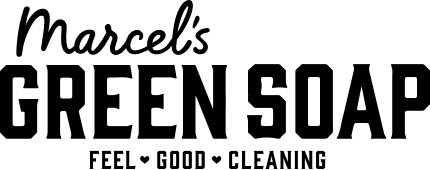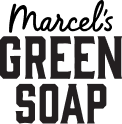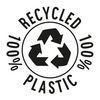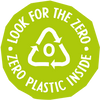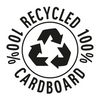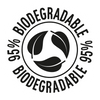Marcel's Green Soap is committed to animal welfare. How do we do that? All our products are 100% vegan and not tested on animals. That sounds logical, but many consumers still wash with animal fats every day and laboratory animals are still used to develop cleaning products. That must and can be done differently.
Cruelty-free cleaning products
In the Netherlands, approximately 480,000 animal tests are carried out every year. Ten years ago this number was a quarter higher. So we are on the right track, but an animal testing-free country is still a long way off. Most tests are done for drug research, but laboratory animals are also used to test cleaning products. We think it's unnecessary. And that is why all Marcel's Green Soap cleaning products are not tested on animals.
Since 2013, laboratory animals may not be used in Europe for testing cosmetic products such as make-up, shampoo, body lotion, sunscreen, toothpaste, deodorant, etc. That seems like good news, but unfortunately this ban does not yet apply to cleaning products. Rats, mice, rabbits, hamsters and guinea pigs are still used for experiments. This results in vomiting, chills, organ failure, paralysis and even death. And if the animals do survive the tests, they are usually killed afterwards.
“With Marcel's Green Soap's animal-free cleaning products, we prove that you can clean your house without endangering people and the environment.”
Just like with cosmetics, animal testing is not necessary at all to develop safe cleaning products. With Marcel's Green Soap's animal-free cleaning products, we prove that you can clean your house without endangering people and the environment. In fact, our cleaning products are completely vegan, at least 97% biodegradable and plastic-free packaged or packaged in recycled plastic.
Animal vs. vegetable fats
Many soap products from well-known brands contain animal ingredients, often without the consumer knowing. In many cases it concerns the ingredient 'sodium tallowate', a difficult word for saponified beef fat. Basically everything with the word 'tallow' has to do with animal fat. For many consumers, the ingredient lists on the packaging are incomprehensible, so they have no idea that they wash with animal fats every day. The fact that animal fats are used in soap dates back to prehistoric times. To do this, let's go back in time:
Soap was already mentioned in the Old Testament, ancient Egypt and the Roman Empire. And a soap-like material found during the excavation of ancient Babylon is proof that soap was made as early as 2800 BC. The first soaps were made from animal fats and oils, boiled with ash, clay or sand. Although the ingredients have changed slightly, the basics are the same: water, fat or oil and sodium hydroxide (or lye) boil to create saponification. The saponification process ensures that fat and water mix together, resulting in a hard soap (that feels soft on the skin). Those fats and oils – which make the soap so nice and soft – can be animal or vegetable.
“For many consumers, the ingredient lists on the packaging are incomprehensible, so they have no idea that they wash with animal fats every day.”
Unfortunately, animal fats are still often chosen. Consider, for example, beef fat in soap or slaughterhouse waste in fabric softeners. The main reason: it is a lot cheaper than vegetable fat. Fortunately, more and more soap makers are exploring the use of vegetable oils. Think of olive oil, rapeseed oil, coconut oil, (RSPO-certified) palm oil, argan oil, linseed oil or hemp oil. Marcel also prefers to use plant power for his products. Plant-based ingredients clean just as well, as many ecological brands have now proven. All Marcel's Green Soap products are therefore, in addition to not being tested on animals, also 100% vegan. This means that only vegetable ingredients are used.
One more thing: animal fats are in most cases a residual product from slaughterhouses. So no additional animals are slaughtered to obtain the animal fats used in soap. Still, Marcel prefers plant-based ingredients. Flowers and plants are full of powerful and nourishing substances that are good for the home, skin and hair. And besides, it is a much more pleasant idea that we wash ourselves with plant-based ingredients. Especially now that after reading this article we know that many care products contain animal fats.
The downside of palm oil
We previously mentioned palm oil as a vegetable alternative to animal fats. Palm oil is a multi-functional ingredient used in many products. For example, in peanut butter, butter and other foods, but also in cleaning products such as shampoo, fabric softener and soap. Palm oil is relatively cheap and you only need a little. But it will not have escaped your notice that palm oil also has a downside. For the production of this oil, large areas of rainforest must make way for oil palm plantations. This seriously threatens the habitat of the orangutan. Due to the construction of plantations, less and less rainforest remains, meaning that orangutans cannot find enough food and therefore die of hunger. In addition, approximately 1,250 animals are killed every year due to conflicts with humans, which are often related to the construction of the plantations. Since 2000, the number of orangutans in Borneo has declined by 100,000, leaving only 75,000 to 100,000 left.
“With our palm oil-free detergent, we hope to persuade other detergent brands to also take the step towards palm oil-free alternatives.”
We think that should be different. Banning palm oil completely is not the solution for the time being, because the alternatives - such as coconut oil, soy oil, rapeseed oil and sunflower oil - are not more environmentally or animal friendly. But we can do something to reduce demand. And that is why we launched the first liquid palm oil-free detergent on the Dutch market. Detergent is used daily and therefore has a major influence on the demand for palm oil. With our palm oil-free detergent we show that it is really possible to clean clothes without palm oil. With this we hope to persuade other detergent brands to also take the step towards palm oil-free alternatives.
Safe for four-legged friends
The fact that Marcel's Green Soap products only contain plant-based ingredients is pleasant for your home, skin and hair, but also for your pet. Residues from cleaning products can stick to a pet's paws or fur. When a dog or cat then washes itself, it can ingest harmful substances. With our plant-based (and animal-friendly) all-purpose cleaners you can scrub the floor with peace of mind. That's also nice if you don't have pets, because you don't want to ingest those aggressive chemicals yourself.
Not unimportant: whether you use Marcel's Green Soap to clean the floor, wash your hair or do the dishes. All soap residue that washes away through the shower drain or sink is at least 97% biodegradable and not harmful to the environment.
100% recycled plastic for a healthier planet
Finally: at Marcel's Green Soap we not only think carefully about the contents of our cleaning products and personal care products, but also about the packaging. Because we also want to burden people, animals and the environment as little as possible. For this reason, all our products are packaged in bottles made from 100% recycled plastic and packaged plastic-free where possible.
Plastic waste is a global problem. Of the more than 9 billion tons of plastic produced to date, half has ended up in the environment. Of this, 11 million tons of plastic flows into the ocean every year. Because this material hardly decays, it remains floating in the sea for centuries. And that is a threat to marine animals such as whales, seals and turtles. Besides the fact that they can become entangled in the plastic, it also ends up in their stomach. Marine animals such as whales can starve after swallowing plastic. The plastic makes them feel full, after which they eat less, consume less energy and weaken or even die. For example, the world was shocked by the news that a dead whale washed up with more than 40 kilos of plastic bags in its stomach. The World Wildlife Fund estimates that 56% of whale and dolphin species have ingested plastic.
“Marcel's Green Soap is the first brand in Western Europe to exclusively use bottles made from 100% recycled plastic.”
For this reason, and so many others, it is important that we produce less new plastic and reuse existing plastic so that it does not end up in our environment. Marcel's Green Soap is the first brand in Western Europe to exclusively use bottles made from 100% recycled plastic. Some of our products are even packaged without plastic, such as our shampoo and conditioner bars and deodorant sticks. And so as a brand we always try to make the world a bit more beautiful for people and animals.
